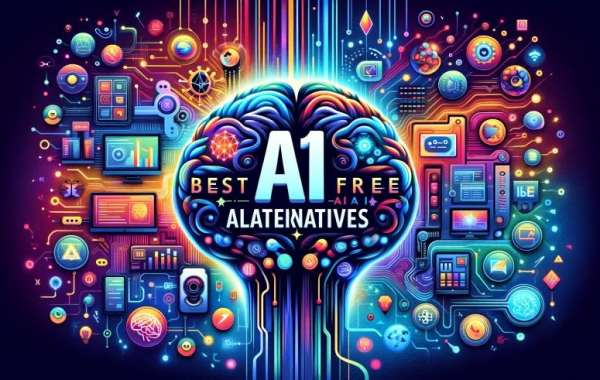1. OpenAI
OpenAI is a powerhouse in the AI industry, known for its groundbreaking work in natural language processing and generative models. The organization’s flagship product, GPT-4, is a testament to its capabilities, providing state-of-the-art language generation that can be leveraged for a multitude of applications. Whether you need advanced chatbots, content creation tools, kaiber ai alternatives or sophisticated data analysis, OpenAI’s models offer a high degree of versatility and power. The platform’s focus on safety and ethical considerations in AI deployment further sets it apart, making it a compelling choice for those seeking cutting-edge AI solutions with a strong emphasis on responsible use.
2. IBM Watson
IBM Watson has been a long-standing leader in the AI sector, offering a comprehensive suite of AI tools and services. Watson’s strengths lie in its ability to integrate AI with business processes, providing solutions for data analysis, customer service, and more. With features such as Watson Assistant for building conversational interfaces and Watson Discovery for deep data insights, IBM Watson enables organizations to harness AI for various operational needs. The platform’s enterprise-grade reliability and extensive support make it a solid alternative for businesses looking to deploy AI at scale.
3. Google Cloud AI
Google Cloud AI brings the power of Google’s extensive AI research to the cloud, offering a broad range of tools and services designed to enhance business operations. With products like AutoML, which allows users to build custom machine learning models without requiring extensive expertise, and the Vertex AI platform for managing and deploying models, Google Cloud AI caters to both novices and experts alike. Additionally, Google’s AI capabilities in image recognition, natural language understanding, and data analysis are among the most advanced in the industry. This makes Google Cloud AI a versatile option for those seeking to leverage AI across different domains.
4. Microsoft Azure AI
Microsoft Azure AI provides a rich array of AI services and tools within the Azure cloud ecosystem. Azure AI’s offerings include pre-built models for language understanding, computer vision, and more, as well as tools for developing custom AI solutions. The platform’s integration with other Microsoft products and services, such as Azure Machine Learning and Azure Cognitive Services, allows for seamless incorporation of AI into existing workflows. Azure AI’s focus on scalability and enterprise readiness, combined with its extensive documentation and support, makes it a strong contender for businesses aiming to integrate AI into their operations efficiently.
5. Amazon Web Services (AWS) AI
Amazon Web Services (AWS) is another major player in the AI space, offering a comprehensive suite of AI and machine learning services through its cloud platform. AWS AI includes a range of tools such as SageMaker for building, training, and deploying machine learning models, and Rekognition for image and video analysis. The platform’s robust infrastructure and scalability features enable organizations to handle large volumes of data and complex AI tasks. With its extensive array of AI services and strong emphasis on integration with other AWS tools, AWS AI is a versatile alternative for those looking to leverage AI for various business needs.
In summary, while Kaiber AI provides substantial AI solutions, exploring alternatives like OpenAI, IBM Watson, Google Cloud AI, Microsoft Azure AI, and AWS AI can offer additional capabilities and features tailored to different needs. Each of these platforms brings its own strengths to the table, whether it’s advanced natural language processing, comprehensive business integration, or scalable cloud-based AI services. By considering these top alternatives, you can make a more informed decision and select the AI solution that best aligns with your goals and requirements.




